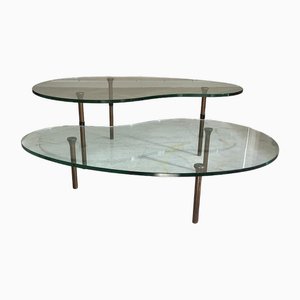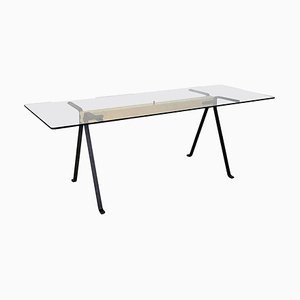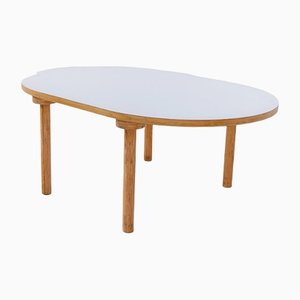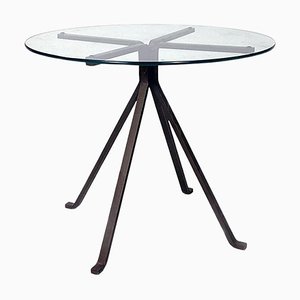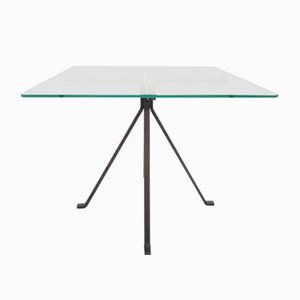
Artist-designer Enzo Mari was born in Novara, Italy in 1932. He studied art and literature at the Accademia di Brera in Milan, but, self-taught as a designer, began working in industrial design during the 1950s. He opened his own design studio in Milan in 1952, from where he has continued to work for over sixty years. Mari has long been interested in the theoretical role of the designer and objects in everyday life, as well as the broader psychology of visual perception; to that end, he has experimented in a variety of visual arts, even founding the Nuova Tendenza movement in Milan in 1963. A respected theorist and teacher, he taught at the Società Umanitaria in Milan between 1963 and 1966, since which time he has continued to teach both in Italy and abroad.
Mari’s work is driven by function and respect for materials. It ranges from furniture, ceramics , and , to books, games, and beyond. Notable works include, among others, 16 Animals (1957), a puzzle featuring carved wooden animal shapes that combine to form a rectangle (this was his first design for the Italian manufacturer Danese); Vase Model 3087 (1969), a double conical vase that functions whether standing on its top or bottom; the Sumatra filing system (1976); and Delfina (1974), a chair featuring a seat and back made of zippered sailcloth. Clients include Le Creuset, Artemide, Magis, Alessi, Zanotta, Driade, Muji, and Japanese furniture atelier Hida Sangyo. His work is included in the permanent collections of numerous respected institutions, with the Museum of Modern Art alone counting nearly thirty Mari designs.
Mari lives and works in Italy.


